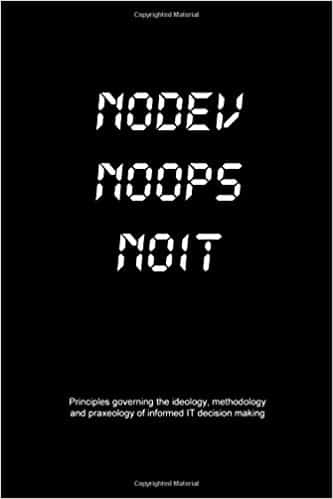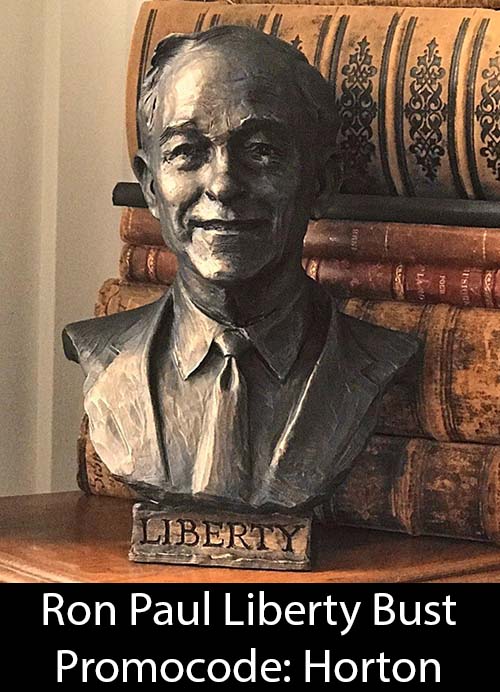Blogger Marcy Wheeler discusses how White House narratives go largely unchallenged by journalists starved of information from government leakers; the favorable testimony of prosecution witnesses in Bradley Manning’s court martial; Glenn Greenwald’s scoop on the NSA’s collection of all Verizon customer call data; how Google, Microsoft, Apple, Facebook and other tech giants help the government spy on Americans; why individuals targeted by government spying can’t get standing to sue in court; and how the FBI is used as a front to evade NSA restrictions on domestic surveillance.
Scott Horton Interviews Marcy Wheeler
The Scott Horton Show
June 6, 2013
Transcript (page down for audio)
Scott Horton: All right, y’all, welcome back to the show. I’m Scott Horton. And yesterday technology and its glitches got the best of us and cut off the end of the Marcy Wheeler interview and we never got to finish. So, well, and then there’s huge breaking news right along Marcy Wheeler lines to discuss as well, so I’m very happy to welcome Marcy Wheeler, the emptywheel as she’s known in the blogosphere, emptywheel.net, back to the show. Welcome back, Marcy, how are you?
Marcy Wheeler: Good. Good to be back.
Scott Horton: Thank you very much for joining us again. Okay, so, first things first, let’s pick up where we left off yesterday. I asked you, so what effect is the Manning prosecution etcetera having on journalism, on journalists and on their sources, and you had something to say about that.
Marcy Wheeler: If I remember correctly, I was saying that I think there’s a number of really good investigative journalists, some of whom just aren’t doing much anymore, and if they are they’re not doing much on national security, others of which I think just have lost the degree to which they are getting sanctioned leaks and therefore they’re not as, they’re not as — as critical. They’re not thinking critically anymore, and as a result we’re getting narratives that make no sense about really fundamental stories, and that’s unfortunate.
Scott Horton: Can you give us some examples of what you’re thinking of there?
Marcy Wheeler: Well I mean like the drones, the drone stories. The administration has been on a year-long dog and pony show about how they’re conducting drone stories, and those started right after it broke that they were engaging in signature strikes in Yemen, and immediately after that there was a bunch of stories about how in fact, you know, there was a lot of control and they knew who they were targeting, and it clearly contradicted what we had just learned and yet that narrative has persisted all the way until today, all the way until two months ago when Jonathan Landay published, and NBC kind of republished what he had published two months ago, that the data show that’s not true. 
Scott Horton: Mmhmm. Well and it’s a little bit understandable on the — well, I mean it’s understandable all the way around, I guess, if I put myself into the journalist’s shoes or in the leaker’s shoes in government. I mean they’re risking much more than before, but I guess it’s also even true just at the Chuck Todd level, right, which I use him as the example of the joke journalist, the anchors, you know, not real reporters, but like the White House press corps types. I keep reading their complaints that the Obama administration just hardly won’t give them any access whatsoever and so they have to just have the world’s worst suck-up contest to see if they can get, you know, two seconds, see if they can get one answer about anything. And so instead of rebelling against that and really fighting back and refusing, you know, standing together and refusing to go along with it and just demanding better access, they all engage in the suck-up contest.
Marcy Wheeler: Right, and I’m — you know, I made this point the other day. You hear a lot of journalists saying we need a better shield law, we need to tweak Branzburg, which is the Supreme Court precedent that governs press protecting their sources. You almost never hear journalists say we have to, you know, dramatically limit the Espionage Act so it’s not used to investigate Americans trying to inform Americans. We need to overturn this administration and the Bush administration’s interpretation of Navy vs. Egan — again, this is another Supreme Court precedent — because the government, both administrations have been using it to claim that the executive branch has unlimited ability to determine what is secret and what isn’t secret, and both of those laws are actually far more important than the journalist shield law in playing these information games. They also allow the government to engage in sanctioned leaks knowing they’re never going to be called on it. And that’s notable. Because I think if we were able to fix the Espionage Act, if we were able to limit the interpretation of Navy vs. Egan, then I think you would have — the government couldn’t use information for political gain the way they’re using it, or at least not to the same extent.
Scott Horton: Yeah, and the pushback from the press has been really minimal, even on the AP story where they’re criminalizing, they’re calling a reporter — oh, no, that was the Fox one, where they’re calling the reporter an unindicted co-conspirator basically in the case of investigating that leak. And along with the AP story which broke just before it, I’ve noticed on TV these people, the TV news anchors, they’re so used to siding with the government that even when they cover these stories they have to laugh and mock themselves for caring about it, and say, ‘Well, you know, we only care because we’re the media and it’s about us, and so, oh, gee, I guess we’re going to actually spend 30 seconds on this today, whereas if this was about anybody else of course we wouldn’t care, because it’s just our benevolent overlords taking care of us.’
Marcy Wheeler: Yeah. I mean, there’s a secrecy problem —
Scott Horton: What a strange attitude to see, you know, when their profession, their most important profession, is under attack like this.
Marcy Wheeler: Right. Right. Well, what their — yeah.
Scott Horton: It’s crazy. All right. So now back to the Manning thing for a minute here too, can you tell us what anybody learned from Adrian Lamo the Rat’s testimony or any of the other developments from the trial itself, anything important people need to know?
Marcy Wheeler: Yeah, the biggest important — I mean Lamo’s was just what we already knew. I think that the most interesting development, which was yesterday after we got cut off, that Manning’s supervisor in Iraq actually had really good things to say about him. She said he was very good at analysis. She said that he would be encouraged to do the kind of surfing that he was doing, that he, you know, that he was supposed to see, he was supposed to download the documents he is being accused of downloading illegally. So even the government’s own witnesses are I think questioning their case to a significant extent.
Scott Horton: So, wait, is that testimony contradicting his guilty plea then on that particular case of —
Marcy Wheeler: No. No.
Scott Horton: — whether he was supposed to download that or not?
Marcy Wheeler: No, it supports his limited guilty plea. It just, I mean what he basically said is he accessed some of this information, the government says no, he illegally accessed it, and what his supervisor said yesterday was no, in fact he had reason to download all of it. So —
Scott Horton: I see.
Marcy Wheeler: Remember —
Scott Horton: So that wasn’t one of the things he had pleaded guilty to. The only things he had pleaded guilty to was taking the documents from there.
Marcy Wheeler: Taking the documents 
Scott Horton: All right. And then so let’s change subjects here, and there’s a lot of them to cover. I almost wanted to start with the Google order first. Do you know about that one? They have been resisting the government’s demands that they turn over I believe vast tracts of data, and they’ve lost, at least on a pretty high level this week. No?
Marcy Wheeler: Yeah. Yeah.
Scott Horton: Can you explain a little better than me?
Marcy Wheeler: I don’t know. I mean it’s just another case of national security letters, the government requiring data in secret, and even in a circuit with a judge who had already said that they couldn’t get this information, judges are still upholding national security letters. But I think, I mean, I think we should actually jump ahead to the Verizon thing, because that —
Scott Horton: Sure, go ahead.
Marcy Wheeler: I mean, so what happened is Glenn Greenwald at The Guardian published a what’s called a Section 215 order, which we, you and I, have talked about a bajillion times, so your readers are way ahead of where everyone else is on this, your listeners. And what it showed is that the government, the FBI, came to the FISA court and said, ‘We want all of Verizon Network Business Services’ metadata for three months.’ And the FISA court said, ‘Great. Here you go. And deliver the data starting Monday or starting whenever to the NSA.’
And so what it shows is that claims that the government is doing dragnet service in fact are true and have long been true. And that the government is doing this via these orders — this one actually gets reviewed by the FISA court. I mean the reason I jumped ahead is because national security letters get reviewed by other judges, normal Article III judges, but over and over again what we’re seeing is the government is successfully collecting massive amounts of data on people who are completely innocent. And that’s what’s important about this Verizon order is that it collects all Verizon Business Services customers, all of them. And —
Scott Horton: Okay, now. And then —
Marcy Wheeler: Go ahead.
Scott Horton: There’s also even kind of a loophole thing where they’re calling it business, like it’s just, it’s like a takeoff on the Patriot Act, or the Know Your Customer provisions of financial institutions have a lower threshold for turning over data, but this isn’t about Verizon dealing with other businesses, this is about all of their customers.
Marcy Wheeler: Right. It’s a third party order, so what — and again, this is how, same with the national security letters, this is how the government is collecting all this information is they ask a private company for data they have on you and the private company is gagged from telling you, and therefore you can’t prove, you can’t challenge the order. And that’s how they’re doing it over and over and over again with all sorts of kinds of data.
Scott Horton: So what does this mean for the standing to sue that every Verizon customer in America is holding in their hand right now? Anything?
Marcy Wheeler: Well, that’s what I argued this morning. The government, both Holder and you know the White House and some members of Congress are saying, ‘Oh, we can’t discuss this in secret,’ and one of the things when you look at this order and, you know, even people who were trying to figure out, who assumed that it was tied to a specific investigation rather than just regularly collected dragnet, they had no clue who they were targeting, because you couldn’t have a clue who they’re targeting because everyone’s being collected. So in other words, these orders, it belies the claim that these needed to be secret in the first place, because if you’re collecting from everybody there is no plausible argument you can make that revealing that you’re collecting from everybody will tip off the terrorists.
Scott Horton: Right.
Marcy Wheeler: So, and I argued that the only reason they’ve been keeping it secret, and the only reason they’re going to refuse to acknowledge this even though they all but have, is because they want to prevent somebody from getting standing. In other words, they’re hoping that some judge will still rule that this does not give a Verizon Business Service customer standing to sue because Verizon is sharing its information with the government. And that itself ought to tell you the government doesn’t think this is legal. Because they have got, 
Scott Horton: Right. And now ‘and challenge it in court’ means, correct, challenge not just the behavior but the FISA Amendments Act that legalizes this, because isn’t this the illegal part of the illegal Bush program that the Democrats legalized in 2008, including then-Senator Obama?
Marcy Wheeler: Actually, no, it goes back to 2006. It goes back — I actually think, I’m going to write a post that I think that this application of Section 215 was birthed in a secret meeting between Robert Mueller and Dick Cheney on March 26, 2004. It goes back that far. The members of Congress who say they’ve known about it say that they’ve known about it since 2006. And what happened was the New York Times had its big scoop in December, December 15th actually, 2005. That was the day before Congress was set to pass the Patriot renewal, the first renewal of the Patriot Act, and there was actually a filibuster, one of the few filibusters that, you know, nobody — there was a filibuster of it, and so the administration had to put off passage, extension of the Patriot Act or the renewal, the four-year renewal of the Patriot Act until March of 2006, and in the interim they tweaked the language pertaining to Section 215, and we have to assume, and there are some IG reports that clearly indicate it and there have been hints by people testifying before Congress that clearly indicate it, that since that time and probably before, they have been using Section 215 to do this kind of massive collection.
Scott Horton: Hmm.
Marcy Wheeler: So, yeah, it comes out of the illegal program. It’s a part of making it legal. But that, I mean it goes back, it goes back seven years.
Scott Horton: Really. Now, so, and then does it go without saying, or we should go ahead and stop and say that if they’re doing this to Verizon, this is the same thing goes for every other telecom, right?
Marcy Wheeler: I think that’s — let’s assume that until they tell us differently for once. You know?
Scott Horton: Yeah. Okay, so Greenwald, in yesterday’s piece at The Guardian he refers to an article that came out in USA Today in 2006 that referred to apparently everybody except Verizon on this whatever. I was just wondering, what exactly is new? I think he said a congressman said that they learned about it at least in 2006. What exactly is new about this other than he’s got the FISA document that proves it?
Marcy Wheeler: Well that’s a big, that’s a big thing.
Scott Horton: I mean that is a big thing —
Marcy Wheeler: Yeah, and just to, just to —
Scott Horton: — but this isn’t a separate and distinct extra project, this is the same project that we’re talking about.
Marcy Wheeler: Well, just as an example, back in 2012 when Binney, and I forget his first name, but when the former NSA, really top-level NSA person was saying that the government was collecting all of this data, Hank Johnson asked Keith Alexander, who heads the NSA, about it in a hearing in March of 2012 and he said, ‘No, no, the NSA doesn’t do that.’ And very tellingly he said, ‘If it’s domestic, the FBI has to do that.’ 
Scott Horton: Mmhmm. And so these — I’m sorry.
Marcy Wheeler: But — yeah, I mean so we’ve known — those of us who track this very closely have been saying for a long time, ‘Look, there’s a huge amount of circumstantial evidence they’re doing this.’ And people who don’t want to believe the government is doing this kind of dragnet spying have responded by saying, ‘Oh, you’re being conspiracy theorists.’ And, you know, those same people and some very good lawyers this morning are going, ‘I had no idea that the relevancy standard meant dragnet surveillance.’ They’re now rethinking the counterarguments they’ve made against us supposed conspiracy theorists for the last five years, because, you know, it’s there in print that this is in fact what they’ve been doing. So I think, you know I think that there are people who will finally be concerned who for years have been dismissing this as a possibility.
Scott Horton: Mmhmm. Well and then there’s a — like we were talking about with the FISA Amendments Act, there’s a bipartisan consensus for this on Capitol Hill that ‘it doesn’t matter what the Constitution says, what matters is we’re taking good care of you,’ that’s what Dianne Feinstein said I think this morning or yesterday, that this is about protecting us from terrorists, so shut your trap.
Marcy Wheeler: Right. Right. I mean and people should know, when 
Scott Horton: Well, on the other hand too though, everybody knows this, and in fact I think we’ve all assumed this since the 1980s or something, that it’s like the Judas Priest song, the eye in the sky and they’re watching everything and tapping every phone. The National Security Agency hand in hand with AT&T etcetera built the entire telecommunications infrastructure of the planet Earth in the first place. I mean, since the end of the Second World War. So of course they could tap every signal on earth that they want to tap, that’s their job, so to think that they’re not doing this to me is the crazy theory. Whether it’s legal or not, whether they can use it against you in court later or that kind of thing is sort of out of the question, but I’m always amazed by these stories that that’s all they’re doing, really? I would have thought that that was 20 years ago.
Marcy Wheeler: Right. But that’s you and I. I mean, honestly, I think if you’ve been following closely, it seems very common sense, but even today people are saying this must be illegal because the relevancy standard doesn’t allow it, and yet you know I keep pointing them to congressional debates going back to 2006 that make it very clear. I mean, in 2006, 2009, 2011, certain members of Congress tried to make Section 215 only apply to if you had a specific connection to a terrorist. So in other words they couldn’t do dragnet, they had to say ‘I need to collect these business records because this person goes to the mosque with this known terrorist,’ and it was defeated every single time, in part with the leadership of Dianne Feinstein but she wasn’t the only one. And so, you know, at that point it becomes crystal clear that they are interpreting ‘relevant to’ very broadly, and yet none of the people covering, or few of the people covering those debates actually wanted to describe it as such, but it has been clear. It’s just nobody, you know, everybody wants to avoid making trouble I think.
Scott Horton: Yeah. Well and you know the people with the political power are the people who aren’t worried about it ever happening to them too. And so —
Marcy Wheeler: Well the funniest thing actually —
Scott Horton: — you know, among the population.
Marcy Wheeler: No, no, the funniest thing this morning is in the appropriations committee with Eric Holder, somebody — and it might even have been Barbara Mikulski, which is funny because, you know, she represents the National Security Agency, so generally she’s the world’s biggest wiretapping fan because that’s her constituent, and probably, you know, her most important one. 
Scott Horton: They’re so horrible. Them congressmen and senators. And they don’t even know how bad that looks. They’re like, ‘What? You mean this abuse could apply to us, not only our constituents that we pretend to serve?’
Marcy Wheeler: Right, that’s exactly what they’re arguing. Yeah.
Scott Horton: Yeah, what about the separation of their power from us?
Marcy Wheeler: (laughs)
Scott Horton: To mind our own business and live in our own house and communicate and freely associate with who we want without having the national government looking over our shoulder, for crying out loud.
Marcy Wheeler: Well, and importantly, in the White House talking points, which are internally contradictory and ridiculous, they say all three branches of government have approved this. And that’s, that is a fiction that needs to be busted with this exposure, because — and that’s something Congress has pushed and is pushing with the drone court is that they are claiming that this secret court that rubberstamps everything, that doesn’t allow any antagonistic representation, much less given the third party doctrine, meaning that Verizon is the person involved here rather than, you know, all their customers, they’re pretending that’s a real court, that, you know. 
Scott Horton: Well you know that’s always been confusing to me, because, you know, like I know if you want to dispute a traffic ticket, that’s not an Article III court at all, that is an Article II court, right? That’s the executive branch, and the person might wear a little black robe but it’s pretend, it sort of has the impression of a judicial check but it’s not really. And then so the FISA court at least used to be housed inside the Justice Department, and I think it’s made up of members of the judiciary, but at that point they’re actually working for the executive branch. But then somebody told me no, only sorta kinda and now they moved down the street. And so maybe they’re an Article ?? court rather than simply an Article II court. Can you clarify that?
Marcy Wheeler: They’re an Article III. The members of the FISA court are picked by the Supreme Court, the Chief Justice. There have only ever been two Democratically appointed FISA court judges, which is pretty funny. Although I have to say that the people John Roberts has picked of late, some of them have a good independent streak, so you know maybe he’s getting worried about this rubberstamp court himself. But —
Scott Horton: So you’re saying it is an Article III court but it’s still a rubberstamp court.
Marcy Wheeler: It’s a rubberstamp court because the standards they’re asked to rule on — I mean, for example, in the Section 215 order, what it says is presumptively you have to in certain circumstances, pretty much anything involving a foreign power, you have to presume that this warrant applies. So the rules in which the judges on that court are allowed to rule on are so narrow it makes them meaningless. If that makes sense.
Scott Horton: Right.
Marcy Wheeler: I mean, the judges are given next to zero discretion.
Scott Horton: I see.
Marcy Wheeler: And so — but that’s 
Scott Horton: Right.
Marcy Wheeler: That’s what they wanted, and they’re responsible for it.
Scott Horton: All right, everybody, that’s Marcy Wheeler, the genius at emptywheel.net. Thank you Marcy.
Marcy Wheeler: Thanks so much, Scott.
Podcast: Play in new window | Download
















